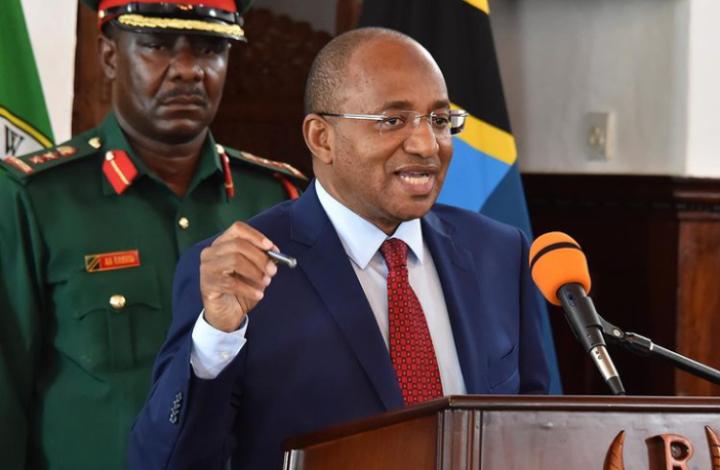Africa-Press – Tanzania. THE police, judiciary and government chemist came under strong condemnation here yesterday over their ineptitude in the fight against abusive drugs.
Zanzibar President Dr Hussein Mwinyi accused the institutions of failing the country in the war against the social and economically destructive business.
“We have articulated laws that forbid bail to suspected drug dealers, but we see suspects walking freely on bail, the job of the police is to arrest and investigate, but they have turned themselves into judges to give verdicts on drug cases,” President Mwinyi charged, directing all defence and security agencies to change and take the war seriously.
Dr Mwinyi said changes are underway to transform the Zanzibar Commission for National Coordination and Drug Control into a special squad capable of arresting, investigating and prosecuting drug cases. “…and even at the courts, not everybody will be allowed to preside over these cases; we will have highly committed and exhaustively vetted individuals,” President Mwinyi said in his address to the nation during the climax of the anti-drug week.
He said the government is determined to make Zanzibar free of abusive drugs, pledging to reinforce the state agencies through appropriate training and equipment. He denounced the abusive drug business as highly destructive to the country both socially and economically.
“Abusive drugs are a major source of insecurity in our streets; they destroy the country’s workforce and cause many deadly diseases like HIV/AIDS, hepatitis and mental retardation,” charged the president.
The Commission Chairman, Mr Hemed Suleiman Abdulla implored all islanders to support the war, which he described as tough.
“This war (against drugs) is huge; it requires the participation and support of all Zanzibaris,” said Mr Hemed whom President Mwinyi appointed on Thursday to chair the commission.
The chairman who doubles as the second vice-president vowed to use all available resources to cleanse the nation of the vice. He reminded all shehas to prioritise the anti-drug campaigns in their areas of jurisdiction, warning that no sheha will remain in office if drug business continues thriving in their areas.
“Even if this will compel us to appoint shehas on a weekly basis, we are ready,” he said.
The chairman pledged to submit in the House of Representative’s September session legislative amendments to transform the commission into an agency to intensify the war against the abusive drugs.
“We are determined to submit the amendments even if under certificate of urgency,” he said. The Commission’s Director General, Lieutenant Colonel Burhan Zuberi Nassor complained over the police, judiciary, office of the chief chemist and the country’s geographical nature as the key impediments to the fight against drugs.
He accused the judiciary of corruption, negligence and immorality, citing a multimillion drug case against a foreigner whom the court freed allegedly due to lack of 200 US dollars (over 460,000/-) to hire a translator. The country’s chief drug fighter described it as awkward to see suspected drug dealers getting bail against the law. He further accused the police of ruling cases instead of taking them to court, hinting that 262 cases were finalised at police stations without reaching the court.
Lieutenant Colonel Burhan further complained that many drug related cases were dismissed merely due to failure by the office of the chief chemist to appear in court to testify. He also attributed the difficulties in the war against abusive drugs to the country’s porous borders.
“There are 371 unofficial ports, which smugglers use in their illicit business; but I have identified them already, I have a lucid plan,” he said







